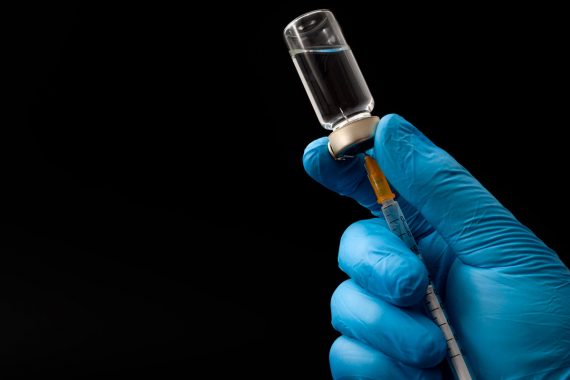The UK Government is set to be the first to deliberately infect volunteers in trials to ‘speed up’ the development of a Covid vaccine – backed by almost £34m – it has announced.
It comes as Pulse exclusively revealed last week that preparations are being made for a possible start to a Covid vaccination programme in December.
And the Government has now passed new laws that will see midwives and paramedics administer vaccines and grant the MHRA powers to approve an unlicensed Covid vaccine.
The Government announced this morning that it will partner with the NHS, academia and the private sector to ‘explore and establish human challenge trials in the UK to speed up the development of a Covid-19 vaccine’.
In ‘human challenge’ trials, a vaccine candidate that has ‘proven to be safe’ in initial trials is given to a small number of ‘carefully-selected healthy adult volunteers’, who are then exposed to the virus ‘in a safe and controlled environment’, the Government said.
Doctors and scientists will closely monitor the effect on up to 90 volunteers 24 hours a day to identify any side effects and assess how the vaccine works, it added.
While other countries are ‘considering’ similar studies, the UK ‘will be the first to seek to establish them’, the Government said.
If approved by regulators and NHS Health Research Authority ethics committees, the studies will start in January with results expected by May 2021.
The studies, in partnership with Imperial College London, the Royal Free London NHS Foundation Trust and vaccine study provider hVIVO, will be backed by £33.6m, the Government announced.
A further £19.7m will scale up capabilities to process blood samples from clinical trials at Public Health England’s (PHE) Porton Down labs, it added.
The initial aim of the research is to find out the smallest amount of virus it takes to infect healthy young people aged 18 to 30 – known as a ‘virus characterisation study’.
Announcing the partnership, business Secretary Alok Sharma said: ‘The funding announced today for these ground-breaking but carefully controlled studies marks an important next step in building on our understanding of the virus and accelerating the development of our most promising vaccines which will ultimately help in beginning our return to normal life.’
Deputy chief medical officer Professor Jonathan Van-Tam added: ‘For the many vaccines still in the mid-stages of development, human challenge studies may help pick out the most promising ones to take forward into larger Phase III trials.
‘[And] for vaccines that are in the late stages of development and already proven to be safe and effective through Phase III studies, human challenge studies could help us further understand if the vaccines prevent transmission as well as preventing illness.’
However, Government chief scientific adviser Sir Patrick Vallance yesterday reiterated that it is ‘unlikely’ a covid vaccine will be available for ‘widespread use’ before the spring.
He told the joint Commons and Lords national security strategy committee that the Government ‘should not overpromise’ but should ‘give a realistic picture of where we are’.
He said: ‘We will know in the next few months if we have any vaccines that really do protect and how long they protect for.
‘At that point, we will also have some idea about the safety profile of these vaccines and from there we can start to look at what a sensible vaccination strategy could be across the population.
He added: ‘I’ve been clear from January that it is unlikely we will have a widespread use before spring. We may get some doses before that [but] this is a big logistic challenge.’
Sir Patrick added that it is ‘quite likely we will have to manage this year on year’ like flu, rather than ‘eliminating’ coronavirus completely.
He said: ‘It is unlikely we will end up with a truly sterilising vaccine, ie something that completely stops infection. It is likely this disease will continue to circulate and become endemic.
‘As management gets better [and] as vaccination reduces the chance and severity of disease, this starts to look more like annual flu than anything else.’
DHSC director general for global health Clara Swinson added that NHS England is running a ‘deployment plan’ for ‘if and when a vaccine passes the many hurdles’ – including discussions with the Ministry of Defence.
She told the committee: ‘There are a number of things that can be planned for, but the uncertainty around which of the vaccines are effective and their characteristics means we are not sure until we know what vaccines are being deployed.
‘The supply [and] the logistics are all being worked on. There is a flu vaccine every year so there is something on this scale that is done. But the time frame, the importance, the timeliness, the interest will be of a scale that we haven’t seen before and we will have to work with all aspects of the public sector and the military to achieve that.’
Last week, Pulse revealed that there are talks taking place at the highest levels around mobilising for a potential Covid vaccine from December, with some sources putting the chances of the programme being started this year as ’50/50′.
Meanwhile, the Government has procured 65m syringes from one manufacturer as part of preparations for a potential Covid-19 vaccine which were due for delivery in September.
Pulse October survey
Take our July 2025 survey to potentially win £1.000 worth of tokens














